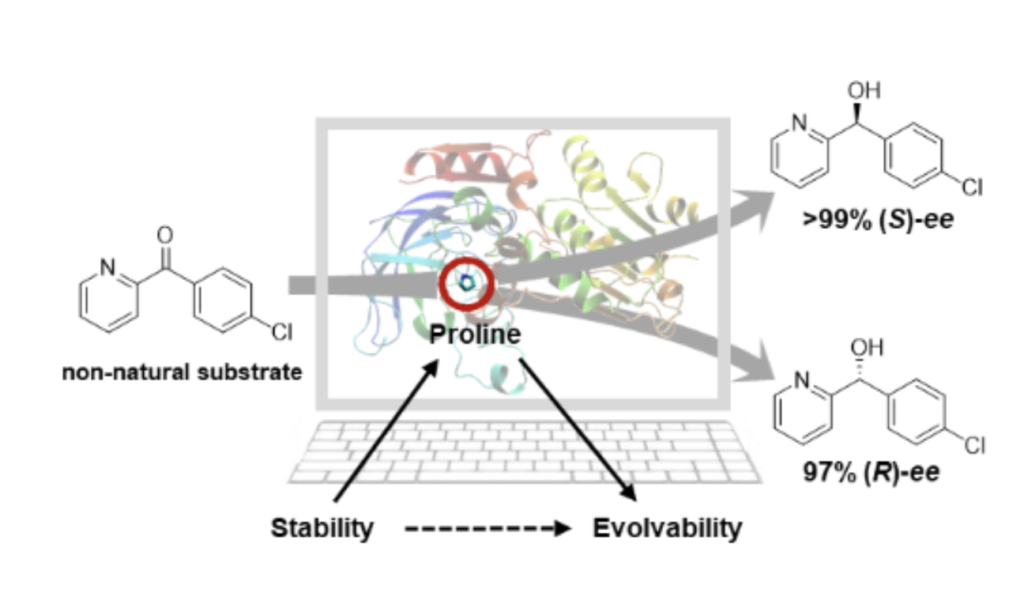The group of SUN Zoutong at the CAS Tianjin Institute of Industrial Biotechnology has introduced a Proline Induced Loop Engineering Test (PiLoT) that helps to discover additional hotspots beyond the conventional ones around the active site. Mutagenesis at these hotspots is most likely to generate variants capable of inducing the desired conformational dynamics. The researchers used thermophilic alcohol dehydrogenase TbSADH as a biocatalyst in the stereoselective transformation of the difficult to reduce diaryl ketone. When the proline residue (P84) situated at the interface of a β-strand and loop region was mutated, the resulting mutants had an unusually high (S)- and (R)-selectivity, respectively, leading to 99% ee and high conversion.
https://onlinelibrary.wiley.com/doi/10.1002/anie.202110793


